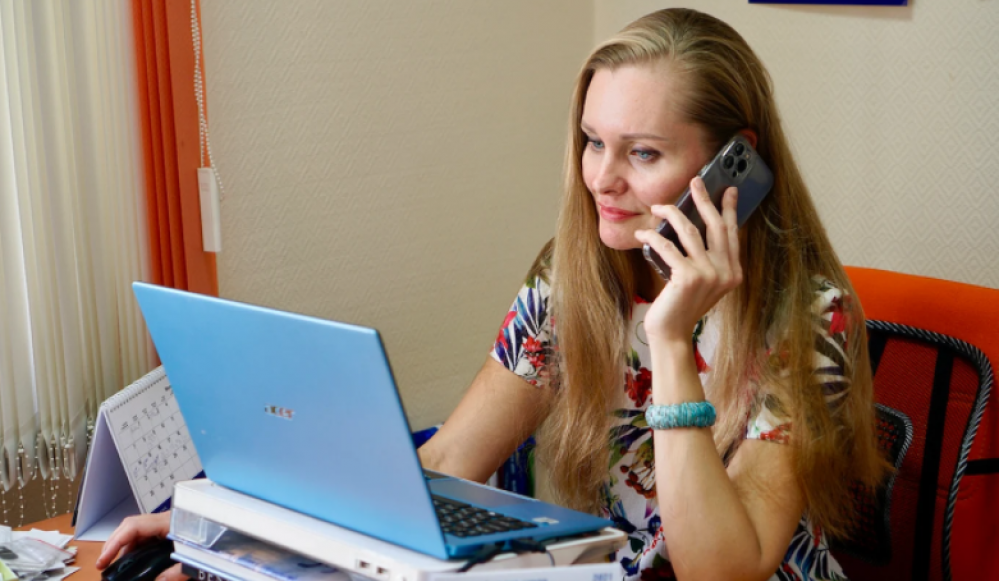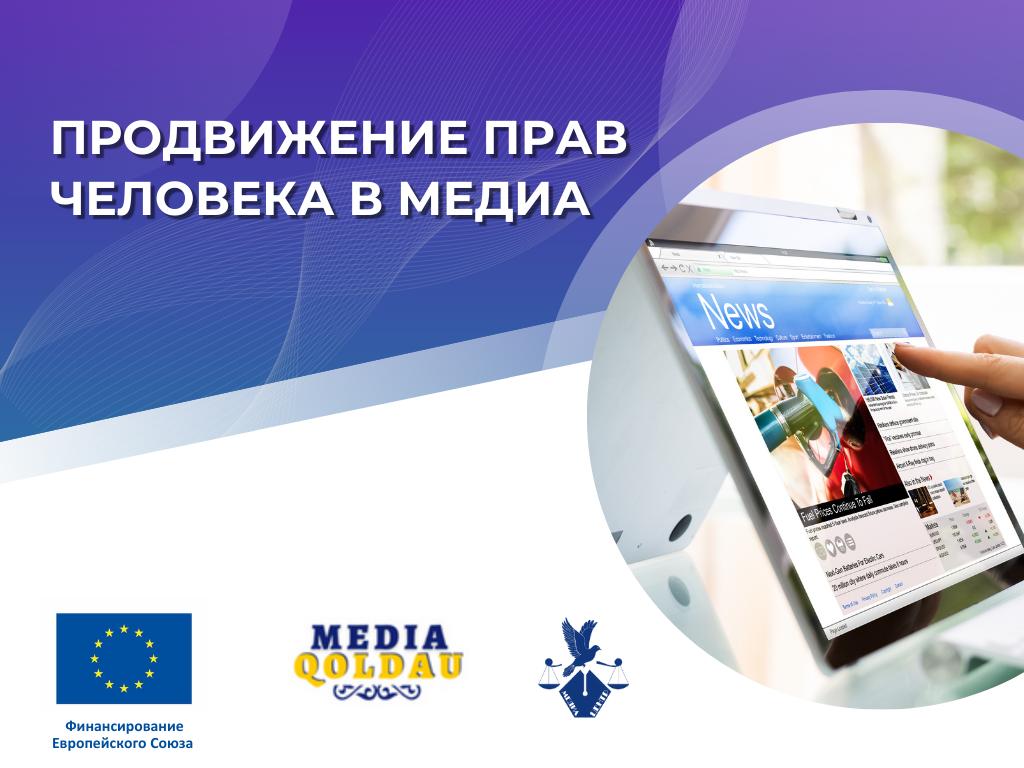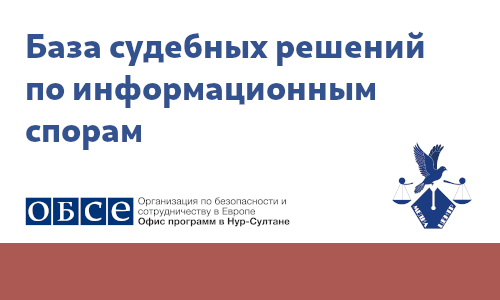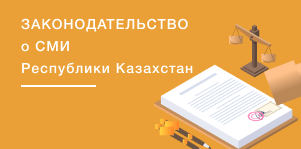

Diana Medvednikova started her career in 2003 at an independent, regional newspaper, Nasha Gazeta. “It’s famous because it has no state funding! It still exists,” she says proudly. Today, Diana is the Director and Cofounder of the Legal Media Center, a nongovernmental organization focused on media rights, in Kazakhstan. The Center is a USAID-funded Central Asia Media Program grantee that advocates for media independence and trains journalists and law students across the country on mass media.
As a former journalist turned activist, she is intimately familiar with the complexities and challenges media professionals face in a constantly changing digital world. “Our aim is to protect journalists’ rights. We do this by working both with journalists themselves, to increase their legal literacy, and with the government, to advocate for reforms that advance press freedom,” says Diana. The Legal Media Center also represents journalists in court when they are unfairly procused.
“We play an active role in media legislation. We participate in government working groups to provide recommendations for the Ministry of Information and Social Development’s consideration to transform our system,” says Diana.
Over a period of five years, the Legal Media Center tracked and developed a database of media outlets that receive state-funding. “We wanted to show that only certain media outlets receive state funding. These outlets are very unlikely to be critical of the state. Kazakhstan spends nearly $150 million USD annually on mass media. While the government invites mass media proposals for their tenders, information about the selection of outlets remains secret. To ensure a more balanced media environment, we are advocating for greater transparency in these contracts,” says Diana.
Two years ago, the Legal Media Center successfully partnered with the government to amend the law on mass media. “We proposed amendments to protect children’s privacy in mass media. For instance, if a minor is a victim, the media is prohibited from disclosing the child’s identity,” says Diana.
For nearly two decades USAID has implemented programs in Central Asia to strengthen media professionalism and independence. Diana has benefited from several USAID-funded training programs over the years.
“USAID has helped us not just with grants but also through its technical expertise. USAID brings international experts from the U.S. and Europe to our country.” Having honed her own skills as a trainer, she is now widely known for training journalists across the country to ensure they know their rights, operate within local laws, and play their integral role in informing and educating citizens on issues that affect them. “In recent years, we have started to train journalists on fact-checking and giving them tools to identify fake news,” she adds.
More recently, the Center offered its comments on the draft law on privacy. The draft included a provision on the right to be forgotten (the right to have personal information removed from internet search engines). “I don’t believe the intention was solely for citizens to benefit from this provision. For example, if a public figure is convicted of corruption, they can potentially apply for this provision and have all information about their wrongdoing erased from the internet,” explains Diana. “We have several discussions with the Ministry, we explained the negative impact it would have on transparency. The Ministry saw the merits of our argument and deleted this provision from the draft law,” says a jubilant Diana.
“Over the past two years, we have partnered with ten universities across Kazakhstan to develop and roll out a special curriculum to train soon to be media professionals on how to protect children’s rights in mass media, to understand the country’s media law, and soon we will start training on investigative journalism,” says Diana.
.jpeg?auto=webp)
While Diana recognizes that there is a lot more work to be done, she draws inspiration from knowing the internet is causing a paradigm shift in access to information. “Newspapers and TV channels are dependent on state-funding, but now there are lots of new and fresh media outlets online that are free and brave, I see it as a good trend,” says a hopeful Diana.
ABOUT THIS STORY:
In 2021, the United States is celebrating 30 years of diplomatic relations with Kazakhstan. The American people, through USAID, have invested more than $700 million in Kazakhstan since 1992. USAID has supported media independence and plurality for over two decades in Kazakhstan. #USKZ30 #KZUS30

.jpeg?auto=webp)
.jpeg?auto=webp)
.jpeg?auto=webp)
.jpeg?auto=webp)
.jpeg?auto=webp)
.jpeg?auto=webp)
.jpeg?auto=webp)
.jpeg?auto=webp)
.jpeg?auto=webp)
.jpeg?auto=webp)
.jpeg?auto=webp)
.jpeg?auto=webp)
.jpeg?auto=webp)
.jpeg?auto=webp)
.jpeg?auto=webp)
.jpeg?auto=webp)




